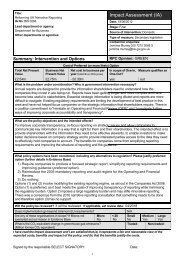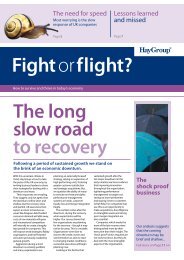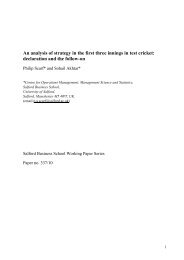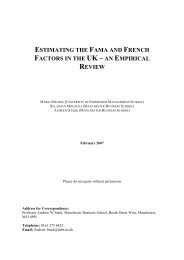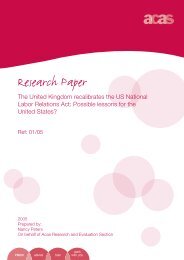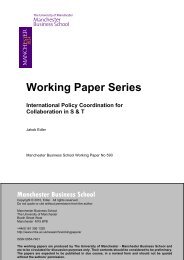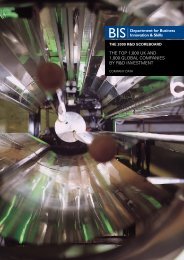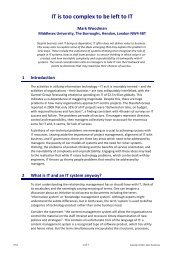Taiwan Business Guide - Management and Business Studies Portal
Taiwan Business Guide - Management and Business Studies Portal
Taiwan Business Guide - Management and Business Studies Portal
You also want an ePaper? Increase the reach of your titles
YUMPU automatically turns print PDFs into web optimized ePapers that Google loves.
<strong>Business</strong> Issues <strong>and</strong> Considerations<br />
Regulations, Incentives <strong>and</strong> Tax<br />
The <strong>Taiwan</strong>ese government is committed<br />
to attracting foreign direct investment<br />
<strong>and</strong> the market is continuing to liberalise.<br />
Fewer than 1 per cent of manufacturing<br />
companies <strong>and</strong> 5 per cent of service<br />
industries remain closed to overseas<br />
investors. In particular, the Global Net<br />
Project will enable UK companies to<br />
take advantage of greater cross-strait<br />
co‐operation between <strong>Taiwan</strong> <strong>and</strong> China.<br />
Foreign investors must obtain foreign<br />
investment approval (FIA) from the<br />
Investment Commission of the MOEA. This<br />
entails submitting an investment plan <strong>and</strong><br />
relevant documentation. Approval may be<br />
granted subject to certain conditions <strong>and</strong><br />
restrictions. Once a company qualifies for<br />
FIA status, it will be entitled to certain<br />
benefits <strong>and</strong> incentives, such as permission<br />
to repatriate equity <strong>and</strong> loan investments,<br />
profits, interest <strong>and</strong> capital gains.<br />
Details of regulations, incentives <strong>and</strong><br />
tax related to overseas investment are<br />
available on the Invest <strong>Taiwan</strong> website.<br />
http://investtaiwan.nat.gov.tw/matter/<br />
show_eng.jsp?ID=8&MID=3<br />
Investment incentives<br />
The <strong>Taiwan</strong>ese government offers various<br />
incentives to make the market more<br />
attractive to foreign investors, generally<br />
in the form of tax breaks. The Statute<br />
for Upgrading Industries (SUI), which<br />
administered these incentives, expired at<br />
the end of 2009. It will be replaced by a<br />
new Statute for Industrial Innovation. This<br />
will provide reduced tax rates for eligible<br />
companies, along with tax incentives<br />
for R&D, skills development, operating<br />
headquarters <strong>and</strong> international logistics<br />
<strong>and</strong> distribution centres in <strong>Taiwan</strong>.<br />
There are also incentives available under<br />
the Statute for Investment by Foreign<br />
Nationals/Overseas Chinese, the <strong>Business</strong><br />
Mergers <strong>and</strong> Acquisitions Act, the Financial<br />
Institutions Merger Act <strong>and</strong> other laws. For<br />
more information talk to UKTI in <strong>Taiwan</strong>.<br />
Tax<br />
<strong>Taiwan</strong> aspires to a simple low-tax system.<br />
In June 2008, the <strong>Taiwan</strong>ese government<br />
formed a Tax Reform Committee which<br />
made various recommendations relating to<br />
tax reforms. Among the key changes was a<br />
reduction in the rate of corporate income<br />
tax from 25 per cent to 20 per cent,<br />
effective from 1 January 2010. The aim<br />
was to combat any negative effects from<br />
the expiry of the SUI <strong>and</strong> to make <strong>Taiwan</strong> a<br />
more attractive environment for investors.<br />
49




